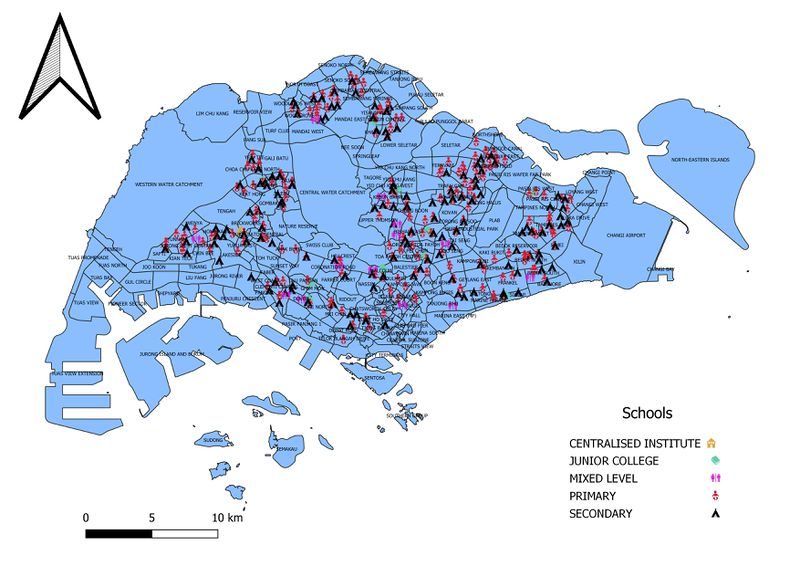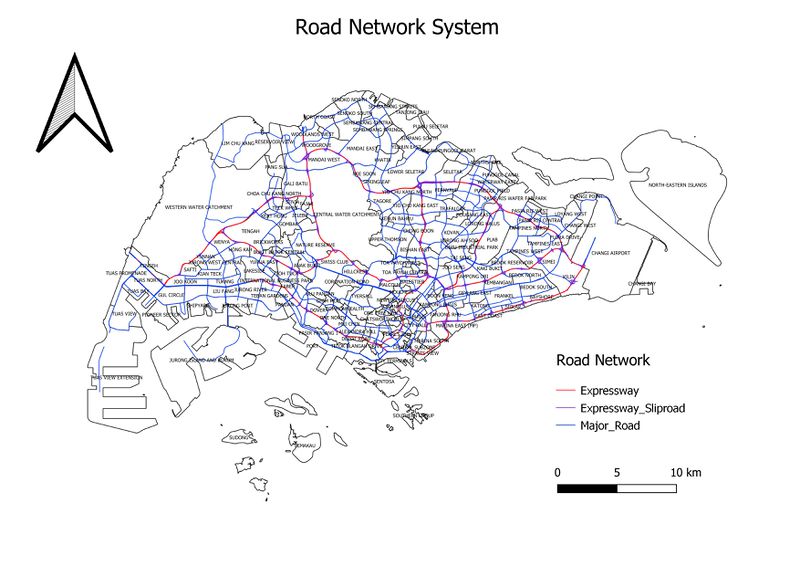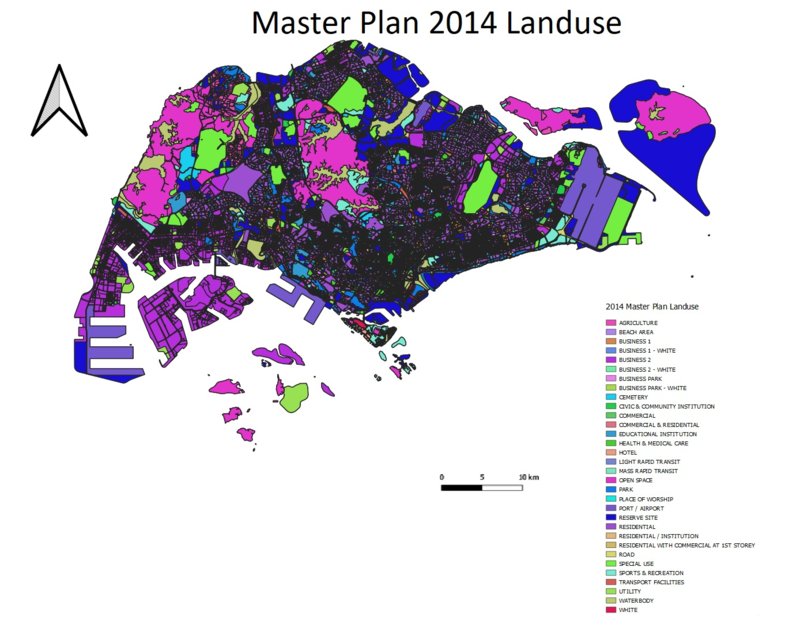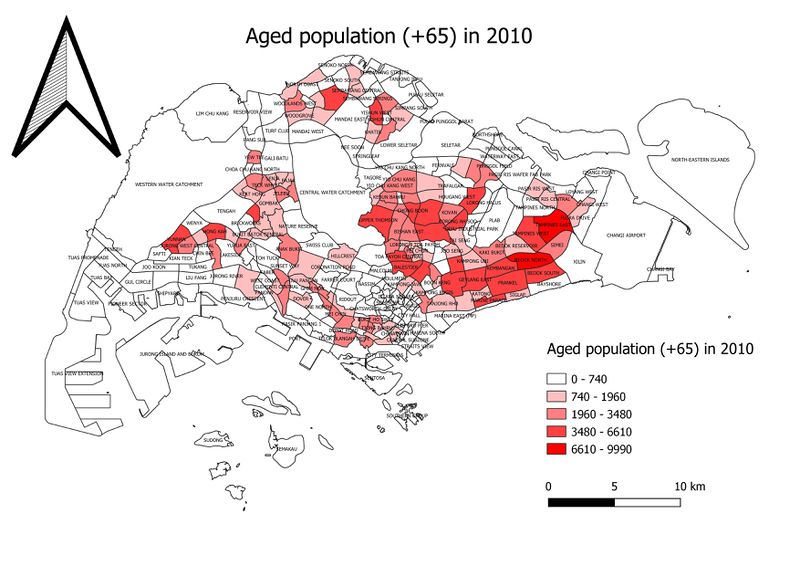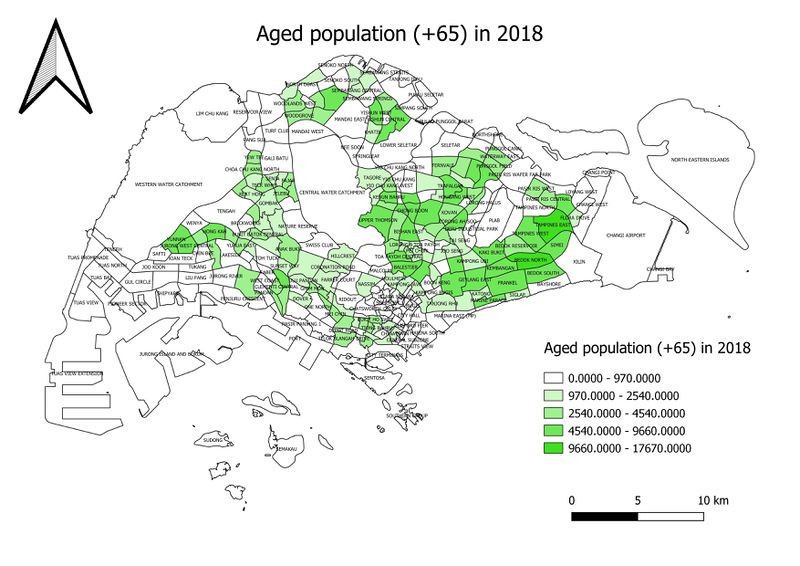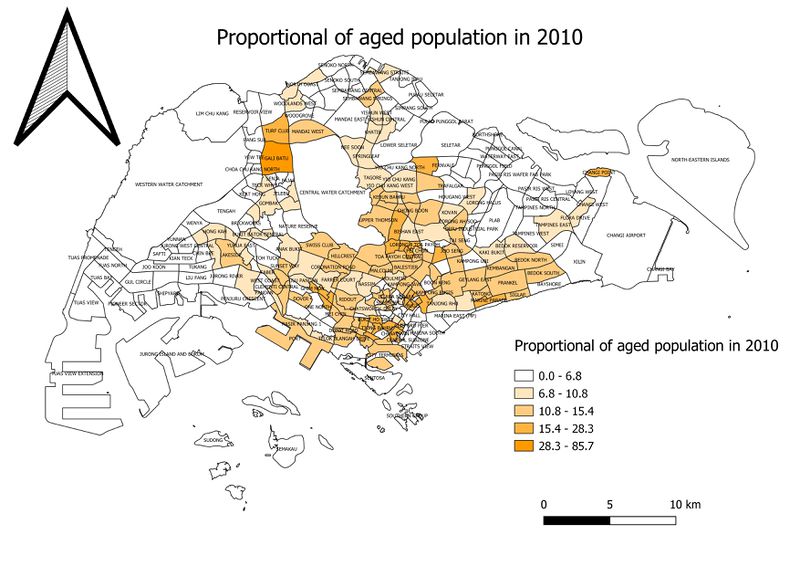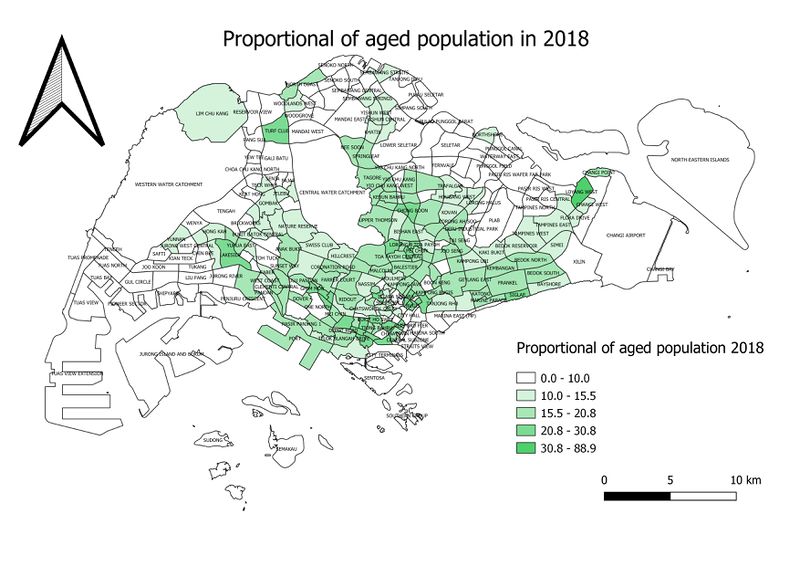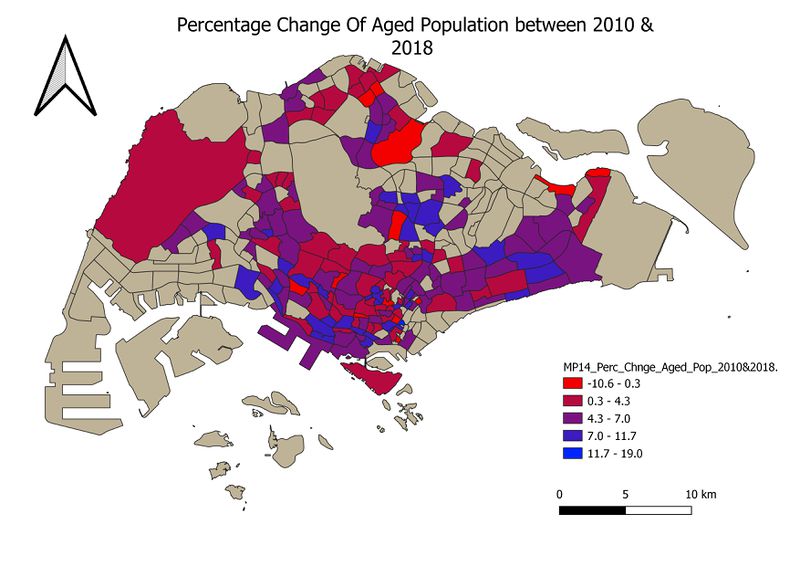Difference between revisions of "SMT201 AY2019-20G2 Ex1 FOO CHUAN GENG"
Cgfoo.2018 (talk | contribs) |
Cgfoo.2018 (talk | contribs) |
||
| (14 intermediate revisions by the same user not shown) | |||
| Line 1: | Line 1: | ||
== Part 1: Thematic Mapping == | == Part 1: Thematic Mapping == | ||
| − | * Distribution of public education institution | + | * '''Distribution of public education institution''' |
| − | [[File:All Schools .jpg|none| | + | [[File:All Schools .jpg|none|800px|caption]] |
| − | + | I have use the code provided by our coursemate to plot the school data points as using mmqgis will result in missing data points | |
| + | <br /> | ||
| + | Classified the data according to its school types, which each data points having a unique symbol ... | ||
| + | <br /> | ||
| + | Source : https://data.gov.sg/search?q=school+information | ||
| − | * Hierarchy of road network system | + | * '''Hierarchy of road network system''' |
| − | [[File:Roadline.jpg|none| | + | [[File:Roadline.jpg|none|800px|caption]] |
| − | + | I classify the road network according to its road types , there are 3 different road types differentiated by different colours | |
| + | <br /> | ||
| − | + | Source : https://data.gov.sg/dataset/national-map-line | |
| − | I categorize the map based on the Land Usage , initially i wanted to group the attributes with common words , but i feel that those attributes may meant different operations to the planner | + | * '''2014 Master Plan Landuse''' |
| − | e.g. Buisness 1 , Buisness 1 - White, Business 2 .. | + | |
| + | [[File:MASTERPLAN 2014 LANDUSE.png|none|800px|caption]] | ||
| + | |||
| + | I categorize the map based on the Land Usage , initially i wanted to group the attributes with common words , but i feel that those attributes may meant different operations to the planner | ||
| + | <br /> | ||
| + | e.g. Buisness 1 , Buisness 1 - White, Business 2 | ||
| + | <br /> | ||
| + | Source : https://data.gov.sg/dataset/master-plan-2014-land-use | ||
== Part 2: Choropleth Mapping == | == Part 2: Choropleth Mapping == | ||
| − | * Aged population (+65) in 2010 and 2018. | + | <br /> |
| − | [[File:AGE65 | + | * '''Aged population (+65) in 2010 and 2018''' |
| + | |||
| + | [[File:AGE65 2010.jpg|none|800px|caption]] | ||
| + | |||
| + | [[File:AGE65 2018.jpg|none|800px|caption]] | ||
| + | |||
| + | For both maps, there is a large number of aged population in the east side of Singapore as the darker the colours , the more the ageing population | ||
| + | <br /> | ||
| + | There is also an increasing number of aged population from 2010 - 2018 | ||
| + | |||
| + | * '''Proportional of aged population in 2010 and 2018''' | ||
| − | [[File: | + | [[File:AGEPROP2010.jpg|none|800px|caption]] |
| − | + | [[File:AGEPROP2018.jpg|none|800px|caption]] | |
| − | + | <br /> | |
| + | The proportion of aged population is more spreaded out across Singapore | ||
| + | <br /> | ||
| + | There is also an increasing number of aged proportion from 2010 - 2018 | ||
| − | + | * '''Percentage change of aged population between 2010 and 2018''' | |
| + | [[File:PerChnge.jpg|none|800px|caption]] | ||
| − | * | + | * '''Discussion''' |
| − | + | <br /> | |
| + | For the data for age population 2010 & 2018 , a lot of data cleaning is involve, i reference the data layout in excel with one of the take home exercise where we are given the age population excel data set . One of the challenge that I face that the column for all the values are recognize by qgis as string format due to it having a comma e.g. '1,200', once i change the column properties to make it 'general' e.g. '1200', qgis recognize it as integer / double which solves the problem. | ||
| + | <br /> | ||
| + | For Aged population (+65) in 2010 and 2018, I added the columns from 60-65 till 85 & over. | ||
| + | <br /> | ||
| + | For Proportional of aged population in 2010 and 2018, I use Aged population (+65) / The total age columns * 100 to get the percentage | ||
| + | <br /> | ||
| + | For the percentage change of age population 2010 & 2018, I joined the shape file of 2008 and 2014 Master Plan , and also the excel file of 2010 and 2018 to calculate the percentage change. | ||
| + | <br /> | ||
| + | Source : https://www.singstat.gov.sg/find-data/search-by-theme/population/geographic-distribution/latest-data | ||
Latest revision as of 10:55, 8 November 2019
Part 1: Thematic Mapping
- Distribution of public education institution
I have use the code provided by our coursemate to plot the school data points as using mmqgis will result in missing data points
Classified the data according to its school types, which each data points having a unique symbol ...
Source : https://data.gov.sg/search?q=school+information
- Hierarchy of road network system
I classify the road network according to its road types , there are 3 different road types differentiated by different colours
Source : https://data.gov.sg/dataset/national-map-line
- 2014 Master Plan Landuse
I categorize the map based on the Land Usage , initially i wanted to group the attributes with common words , but i feel that those attributes may meant different operations to the planner
e.g. Buisness 1 , Buisness 1 - White, Business 2
Source : https://data.gov.sg/dataset/master-plan-2014-land-use
Part 2: Choropleth Mapping
- Aged population (+65) in 2010 and 2018
For both maps, there is a large number of aged population in the east side of Singapore as the darker the colours , the more the ageing population
There is also an increasing number of aged population from 2010 - 2018
- Proportional of aged population in 2010 and 2018
The proportion of aged population is more spreaded out across Singapore
There is also an increasing number of aged proportion from 2010 - 2018
- Percentage change of aged population between 2010 and 2018
- Discussion
For the data for age population 2010 & 2018 , a lot of data cleaning is involve, i reference the data layout in excel with one of the take home exercise where we are given the age population excel data set . One of the challenge that I face that the column for all the values are recognize by qgis as string format due to it having a comma e.g. '1,200', once i change the column properties to make it 'general' e.g. '1200', qgis recognize it as integer / double which solves the problem.
For Aged population (+65) in 2010 and 2018, I added the columns from 60-65 till 85 & over.
For Proportional of aged population in 2010 and 2018, I use Aged population (+65) / The total age columns * 100 to get the percentage
For the percentage change of age population 2010 & 2018, I joined the shape file of 2008 and 2014 Master Plan , and also the excel file of 2010 and 2018 to calculate the percentage change.
Source : https://www.singstat.gov.sg/find-data/search-by-theme/population/geographic-distribution/latest-data
